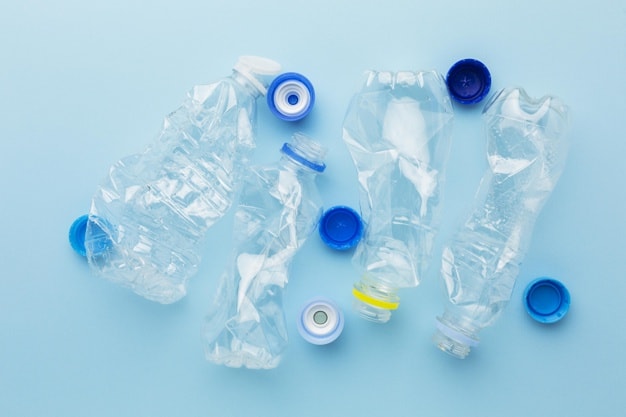- You are here:
- Home »
- Organic Bedding »
- Is Polyester Toxic?
Is Polyester Toxic?
Disclaimer: As an Amazon Associate I earn from qualifying purchases.
The truth is that many people do not realize the real-life effects of using polyester fabrics, especially when it comes to bedding. The short answer is that several harmful products are embedded into polyester with some potentially bad effects.
It is not only polyester, but other synthetic materials, as well as nylon or acrylic, all use chemicals known as thermoplastics that are not safe, especially when heated.
Perfluorochemicals (PFCs) are also used in synthetic textiles, like polyester sheets. Sometimes, Teflon is also used as an additive to add durability and stain resistance to the fabric and to make it more wrinkle-free.
PFCs can have dangerous consequences over prolonged periods of time. They can accumulate in the blood, become potentially cancerous, and pose several health risks like kidney or liver damage and reproductive issues.
What is Polyester?
Polyester fabric is a man-made fabric that is made using polyester fibers and is one of the world’s most popular textiles. These fibers are usually derived from petroleum.
Among synthetic materials, polyester is one of the most widely used ones. In fact, polyester is actually a type of man-made plastic. It is used widely, as its production is cheap and it is not derived from natural sources.

You must already know that polyester is also used in combination with natural fibers. As polyester has a synthetic, rubbery feeling, it is mostly blended with fibers to create softness while diluting the plastic feel. A cotton-polyester blend is commonly used all over the world, especially in bedding and mattresses.
Another fact about polyester fabric is that it is non-biodegradable, which means it will not decompose for 20 to 200 years. Despite this knowledge, it is still being used as a popular fabric.
Polyester fabrics are smartly woven in a way that they get a natural fabric finish. The fabric may feel like jute, when it is actually polyester. As it’s so affordable and low-cost to produce, it can be found in bed sheets, pillow cases, duvet covers, mattress covers, and all kinds of fabrics.
How is Polyester Fabric Made?
Many people wonder how polyester is made. Basically, polyester is made with purified terephthalic acid (PTS) and monotheluene glycol (MEG).
Simply put, it is a man-made polymer created from a chemical reaction in which two or more molecules join to create a larger molecule. The chemical reaction uses a high amount of pressure as well as heat to occur. And it is made in a vacuum.
More specifically, polyester fabric is made by a chemical reaction using coal, air, petroleum, and water. This process is known as polymerization. While it is hot, the polymer material is stretched into long fibers. These fibers, when stretched, become 5 times longer than their original length, and the final molecule is also extremely tough.
Non-renewable resources are used to create polyester, which is why it is non-biodegradable. The extraction process from fossil fuels also releases high levels of carbon footprints which is harmful to the environment.
Is It Safe to Sleep on Polyester?
It is completely natural to ask how the toxicity of polyester fabrics translates in real life. Especially when it comes to sleeping: Will polyester bedding actually harm you?
Now, the answer lies in the fact that our bodies and the bedding materials produce heat and friction when we sleep on our beds at night. This body heat then releases the same harmful chemicals into the air that we inhale and is also absorbed by the skin. Hence, it is technically not safe to sleep on polyester.
Most manufacturers promote polyester blends as safe and risk-free. But there is no denying that the health risks are there.

Is Polyester Carcinogenic?
Some people argue that polyester itself is not carcinogenic. However, most of the polyester used in textiles is polyethylene terephthalate, abbreviated as PET. According to studies, 80% to 85% of PET contains a substance called antimony which is a carcinogen. It is known to be toxic for the heart, lungs, liver, skin, and can create serious health complications.
Many people in the industry argue that antimony has no practical harm on the living body as it is locked into the polymer during the chemical production process. But during high-temperature dyeing processes, the same antimony is released as a waste product and still ends up in our water and the air around us.
Research has also confirmed that excessive exposure to polyester fabrics exposes you to health risks as the fabric carries carcinogens. So, it is not the best idea to sleep in this material throughout your lifetime and expose yourself to the dangers of polyester.
More Health Risks of Sleeping on Polyester:
Sleeping on bedding made from polyester has some more risks that people should be aware of. Often, cotton-polyester blends are treated with a substance called formaldehyde. This substance helps to prevent the cloth from shrinking.
The issue is that according to the EU classification, this formaldehyde also falls under the category of class 3 carcinogens. Hence, respiratory issues may result from prolonged contact with polyesters.
Reproductive issues are another possible side effect of polyesters. In 1993, a polyester toxicity study found reduced sperm count in men that were in direct contact with polyester fabric. Even skin issues like eczema or dermatitis can get aggravated due to polyester.

Is Recycled Polyester Safe?
A new trend that has emerged in the eco-fashion industry is that of recycled polyester. One can say that it is the ‘green’ version of the same frowned-upon polyester fabric that we just discussed.
Interestingly, recycled polyester is made using PET, also used to manufacture plastic bottles. So, instead of going into landfills, the same plastic is crushed and turned into a wooly, fluffy fabric, a new version of polyester fabric. It is increasingly marketed as an eco-friendly choice as this method reduces waste and pollution.
But the truth is that recycled polyester is just as toxic for the user as well as the earth. After all, if plastic bottles are a hazard to the earth, how can they be safe for the human body?
Plus, most clear plastics do contain BPA (Bisphenol A) and by switching to recycled polyester, our bodies might get exposed to BPA, which is simply not safe or healthy. The skin can quickly absorb these materials and the toxins entering the bloodstream can disrupt the entire system.
Recent research also found a positive correlation between exposure to BPA and raised blood pressure. In short, recycled polyester is not a safe alternative. Rather, it is potentially dangerous in its own way.

Is It Possible to Be Allergic to Polyester?
Some people do have an allergic reaction when their skin comes in direct contact with polyester. A polyester allergy results in a skin reaction and is a type of contact dermatitis. The chemical additives present in polyester fabrics can cause this reaction.
The symptoms of a polyester allergy typically include:
- Abnormally warm skin
- Swollen skin
- Redness
- Presence of blisters or hives on the body
Sometimes fabric allergies can also result in symptoms like:
- Tightness of the chest, sometimes accompanied by pain
- Breathing issues
- It is possible for the symptoms of polyester allergy to appear within minutes of contact, or they can take several days to show up physically.
Are 100% Polyester Sheets Comfortable?
On its own, 100% polyester sheets are super affordable. But are they comfortable? Well, if microfiber polyesters are used, they can be made to feel smooth and comfortable. But in comparison to cotton, polyester is not a breathable material. Pure polyester sheets can also feel quite hot at night.
Hence, most people opt for cotton-polyester blends as they get some of the softness of cotton and are adequately comfortable. Many bed sheets, covers, and pillows in the market are poly-cotton blends.
If you put polyester sheets side by side with 100% cotton sheets, you would feel a remarkable difference. Pure cotton is simply much softer to the touch, in addition to being cooler and more breathable.

What Are The Best Polyester Alternatives?
There are a number of alternatives available if you are looking to switch from polyester fabrics and sheets in your bed. One great alternative, as mentioned earlier, is cotton. Silk is another option too.
However, if you are more serious about your (and your family’s health) as well as planet Earth, you can turn to organic bedding and organic mattresses.
The safest option for our bodies and health today is to go organic. There are a number of benefits of using organic bedding. Organic farming produces 60% fewer carbon emissions compared to traditional cotton.
There is no use of toxic materials, so there is zero possible harm to you and no chance of allergic reactions. A sweet good night’s sleep, assured safety, and good health are all significant reasons to switch from synthetic materials, polyester, or poly-blends.
We recommend 100% organic and natural bedding alternatives for improved health and high-quality sleep while protecting the environment.
About the Author Kamila Flieger
My name is Kamila, and I'm passionate about researching non-toxic, organic products for the home. I believe it's so important to create a safe and healthy environment for our families, and I enjoy helping others do the same.

